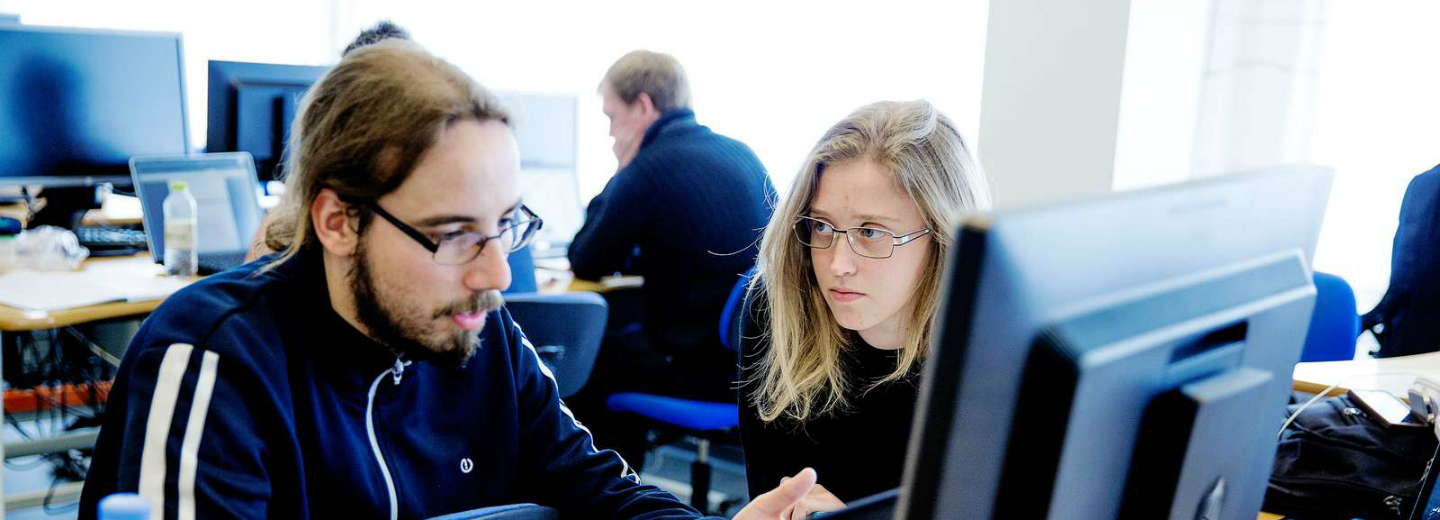
More students complete study programmes at Science
The latest figures for study time show that students at Science complete their study programmes more quickly. The positive development can be seen at both Bachelor and Master's level, where there has been a reduction of exceedance from 8.0 months in 2015 to 6.1 months in 2016 at the Bachelor level and from 10.6 months in 2015 to 8.3 monthjs in 2016 at the Master's level.
One of the departments that is particularly pleased with this development is the Department of Biology, where exceedance of study time has nearly halved at Master's level:
"At Biology, we have in recent years implemented several initiatives with the aim of improving study time on the Master's study programme. A couple of years ago, we introduced reflection meetings with every student in the 6th semester, and I'm sure that is one of the things which has had a positive effect on study time. The fact that students are asked to take responsibility for their academic direction and thesis earlier on means that they are clearer about their Master's study programmes, and ultimately go on to complete their programmes more quickly. The reflection meetings are also a good way to meet individual students precisely where they are, and it's my experience that this also contributes to increasing their study-related wellbeing and consequently their ability to complete their study programmes in the time stipulated," explains Head of Department Marianne Holmer.
Participating in Biology's reflection meetings are representatives from the Department's Study Committee and from the research groups, who sometimes meet with several students at a time. At the meeting, the students are asked to take a position on which subjects they wish to have in the Master's study programme and with which research group they would like to write their thesis.
Aside from the reflection meetings, Marianne Holmer thinks the Progress Reform has had an effect on study time, as it has placed new demands on particularly the thesis process:
"At the departments, we have been forced to take more control over the whole thesis process. It's about choice of thesis, project descriptions and hand-in deadlines. Although this has presented some problems for the Department, such as the planning of field work, I am still pleased that it seems to have had a good effect on study time and, therefore, also on the Department's education income," emphasises a satisfied Marianne Holmer.
The Department of Biology has also seen an improvement at Bachelor level, and according to Marianne Holmer this is due to several things:
"We have had a lot of focus on making the courses as 'biology friendly' as possible. For instance, we have had the mathematics, chemistry and physics courses adjusted so that they are more relevant for biology students. At the same time, as with the thesis projects, the Bachelor projects have been placed in a more rigid framework through compulsory registration for the Bachelor project and fixed dates for hand-in of project descriptions. Finally, the grade point average to enter the Biology programme has risen in recent years, which could also be significant for the students' completion time. A development that I expect will continue in the coming years," concludes Marianne Holmer.
Dean Martin Zachariasen is pleased that it now looks as though the Faculty's efforts in recent years have paid off:
"It is pleasing that the overall study time has fallen at Science. Both because it is important for the individual student's studies, but also because it has a positive effect on the Faculty's resource consumption and finances. We can already see that the preliminary STÅ-production looks to have improved by almost 150 STÅ this year, which means an increased education income for the Faculty of around DKK 10 million. Unfortunately, there is still a fly in the ointment as this is not an increase in education income which we will necessarily see to the same extent in the coming years. For the same reason, we still need to help each other by effectivising our study programmes if we are to minimise deficit at the Faculty and balance our finances by 2019," says Martin Zachariasen and continues:
"On the other hand, I can see great potential for Science in regard to retaining our students so that we reduce the high dropout rates on some of our study programmes. This will be one of the challenges which we will tackle together in the coming years, and which I hope everybody will do their best to help succeed," concludes Martin Zachariasen.
Photo: Nils Lund/SDU